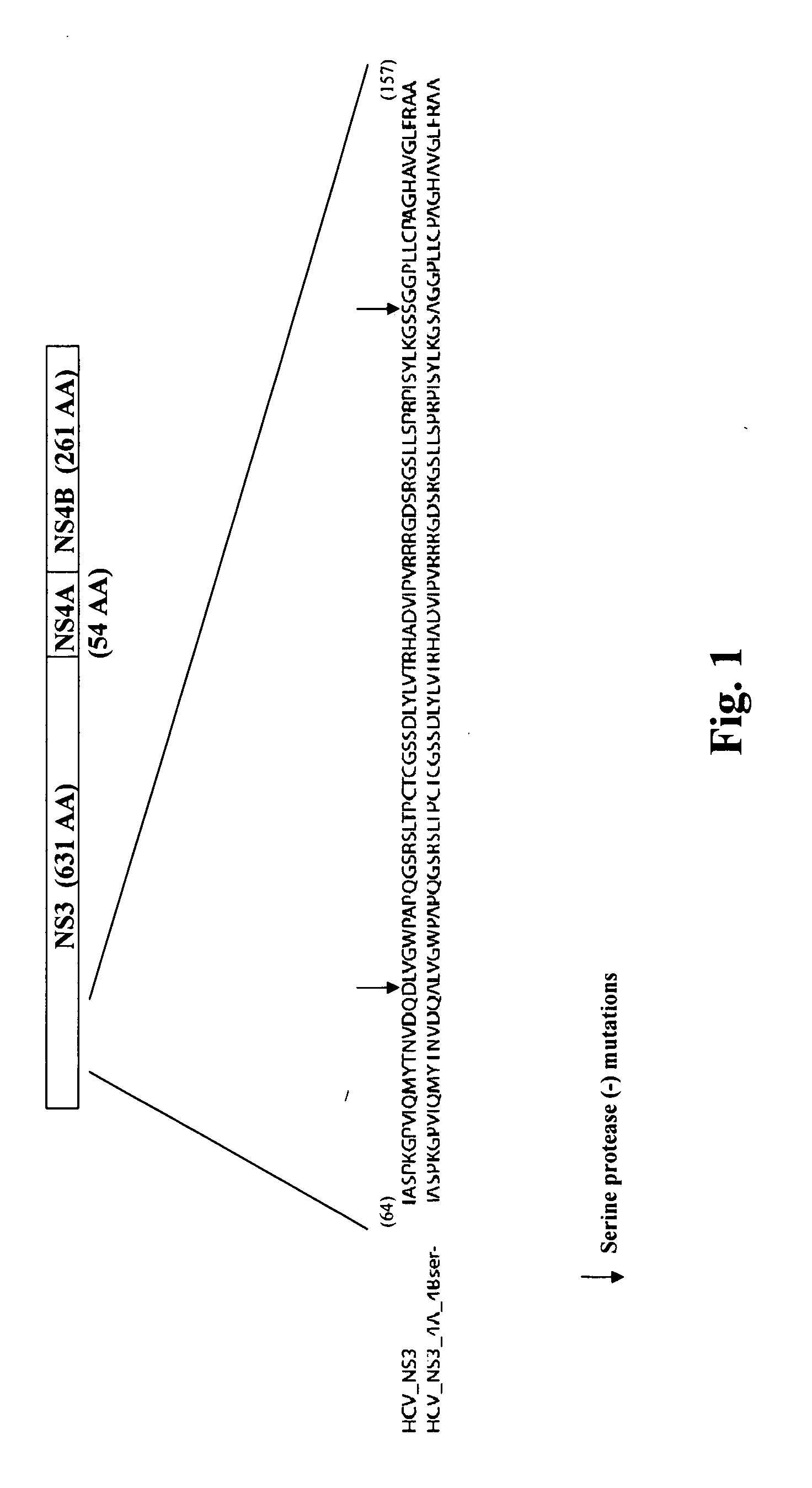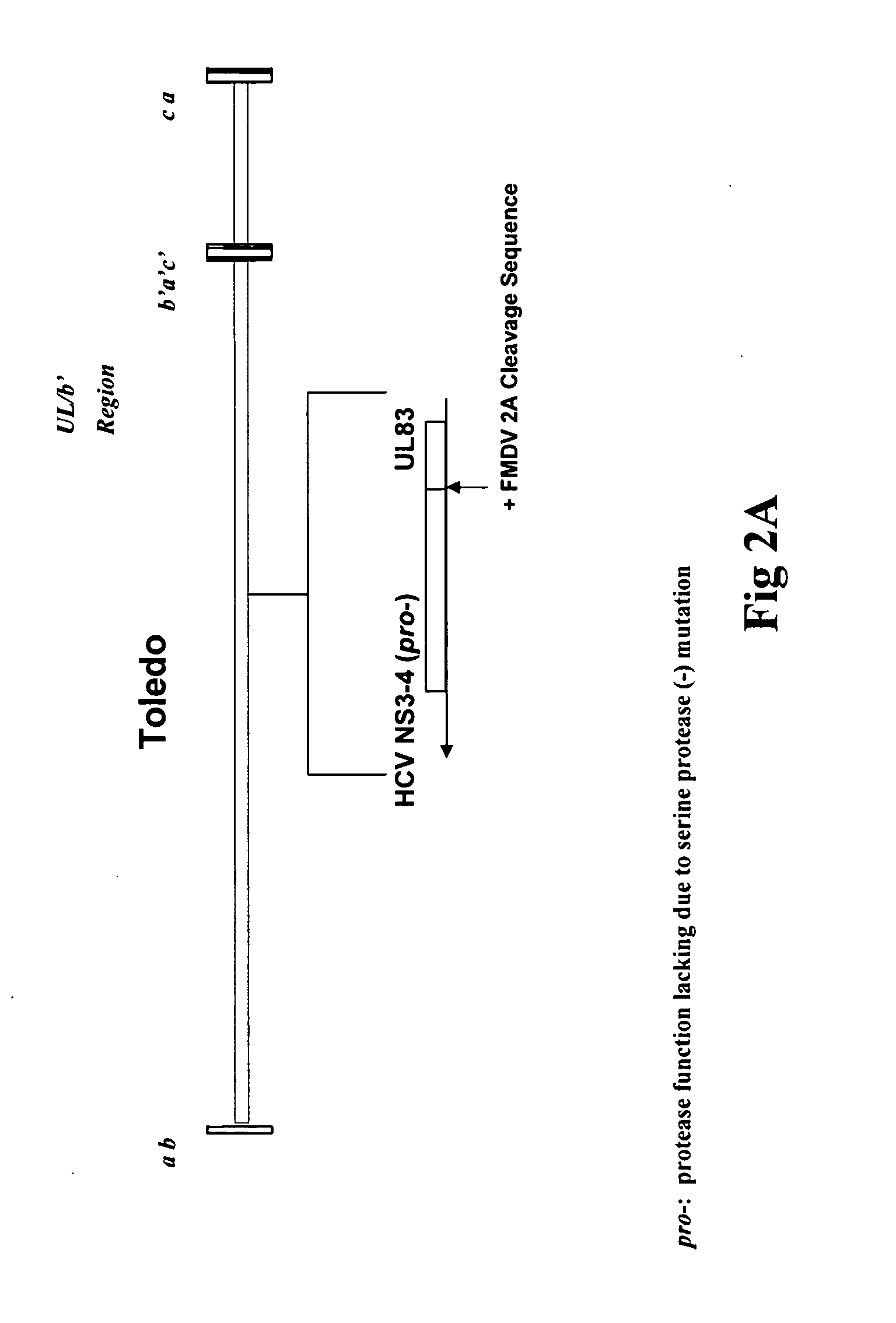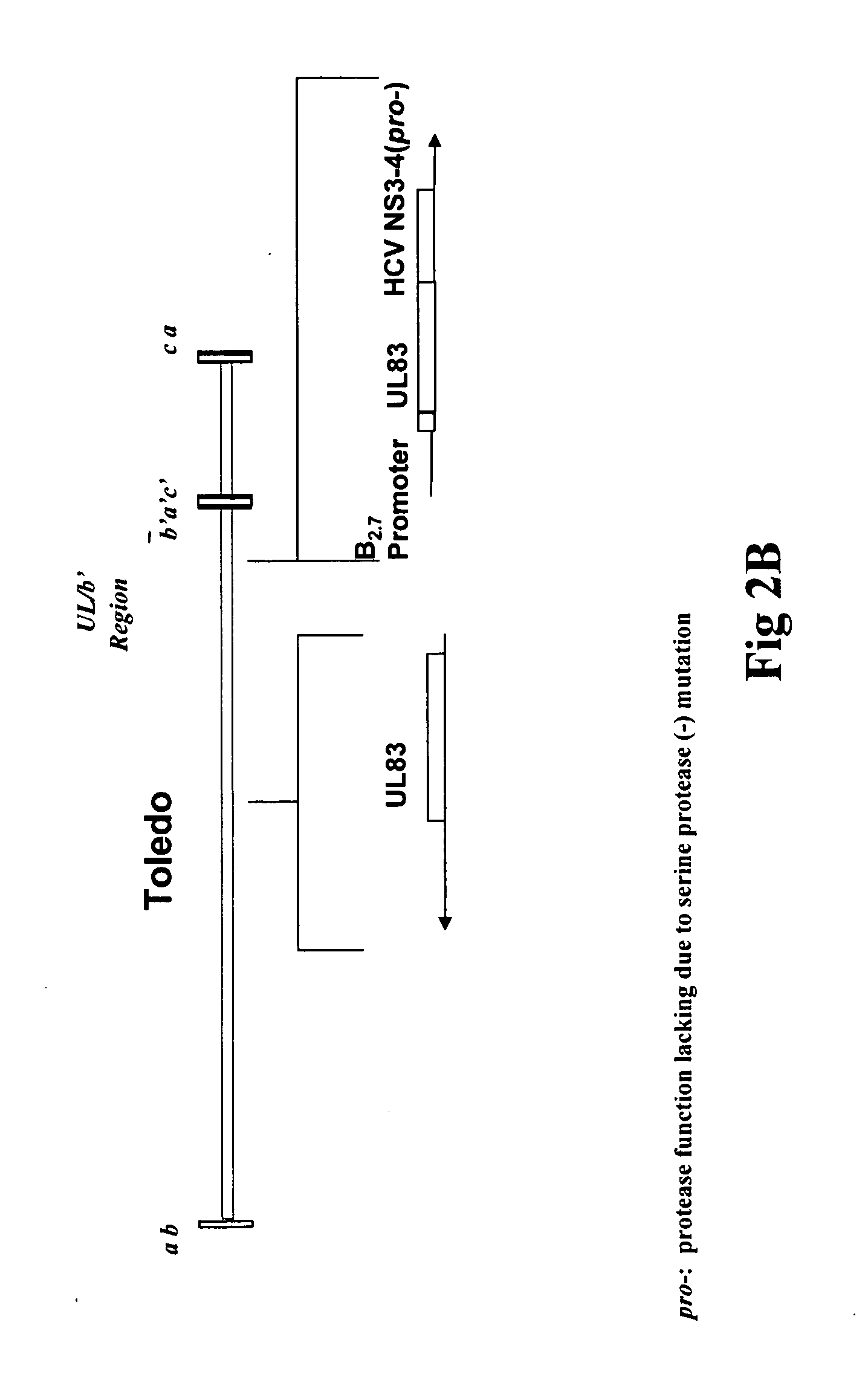Recombinant human cytomegalovirus and vaccines comprising heterologous antigens
a human cytomegalovirus and heterologous technology, applied in the field of recombinant human cytomegalovirus and vaccines comprising heterologous antigens, can solve the problems of limited use, limited efficacy of current vaccine strategies for the prevention or treatment of numerous infections and diseases, and several major limitations of vectors, so as to stimulate a robust cellular immune response
- Summary
- Abstract
- Description
- Claims
- Application Information
AI Technical Summary
Benefits of technology
Problems solved by technology
Method used
Image
Examples
example 1
Generation of Recombinant HCMV
[0118]This example describes a general protocol for the construction of the recombinant human cytomegalovirus described in the application. The recombinants may include 1) modifications or mutations that result in a virus with a phenotype more suitable for use in vaccine formulations, 2) insertion of one or more heterologous genes or gene fragments encoding a foreign antigen into the endogenous pp65 protein to generate a pp65 fusion protein, 3) insertion of a gene encoding a pp65-antigen fusion operable linked to a promoter in a discrete location from the endogenous pp65 gene, 4) insertion of one or more heterologous genes or gene fragments encoding a foreign antigen operably linked to either the endogenous pp65 promoter or a promoter in a discrete location, and 5) combinations of the above.
Materials and Methods
[0119]Handling CMV and constructing CMV genomic mutants: General methods are known to practitioners of the virology art. See, e.g., Mocarski et ...
example 2
Generation and Characterization of Recombinant HCMV Expressing a HCV NS3-4A-4B (pro-)-UL83 Fusion
[0128]A recombinant HCVM virus was constructed expressing the HCV NS3-4A-4B gene product. Specifically a protease deficient variant (see FIG. 1). In this case the recombinant virus expressed the HCV gene from the endogenous native UL83 gene (see FIG. 2A) however, also contemplated is the expression of a HCV NS3-4A-4B (pro-)-UL83 fusion from a location eptoptic to the native locus (see FIG. 2B). The genomic organization of the recombinant virus was confirmed by Southern blot analysis, and the expression of the HCV NS3 protein was shown by Western blot analysis.
Materials and Methods
[0129]Construction of HCMV Expressing a HCV NS3-4A-4B (ser-)-pp65 fusion: The technique used for rescue of recombinant HCMV by overlapping cosmids was performed essentially as previously described (Kemble et al., 1996). To facilitate the construction of Toledo 2A HCV by overlapping cosmids, a cosmid containing t...
example 3
Primate Model Studies
[0135]It is a goal of this invention to provide a recombinant HCMV expressing a pp65 polypeptide or fragment thereof fused to a heterologous polypeptide. In particular, the present invention encompasses immunogenic preparations (e.g., vaccine). This example details the primate system used to test the efficacy of the recombinant HCMV of the invention to modulate disease in an animal. This proof of concept can be expanded to encompass recombinant HCMV vectors to provide an immune response to numerous other pathogens, viruses and cancer antigens as described supra.
[0136]Hepatitis C virus (HCV) is one of the major blood-borne viruses that infects more then 100 million people world-wide. The CD8+ T-cell response is thought to be important for the control of HCV. Thus, the recombinant HCMV of the invention expressing a pp65-HCV antigen is an ideal immunogenic preparation to modulate and / or prevent the progression of disease mediated by HCV.
[0137]HCMV is a well known, ...
PUM
| Property | Measurement | Unit |
|---|---|---|
| immunogenic composition | aaaaa | aaaaa |
| resistance | aaaaa | aaaaa |
| size | aaaaa | aaaaa |
Abstract
Description
Claims
Application Information
 Login to View More
Login to View More - R&D
- Intellectual Property
- Life Sciences
- Materials
- Tech Scout
- Unparalleled Data Quality
- Higher Quality Content
- 60% Fewer Hallucinations
Browse by: Latest US Patents, China's latest patents, Technical Efficacy Thesaurus, Application Domain, Technology Topic, Popular Technical Reports.
© 2025 PatSnap. All rights reserved.Legal|Privacy policy|Modern Slavery Act Transparency Statement|Sitemap|About US| Contact US: help@patsnap.com



